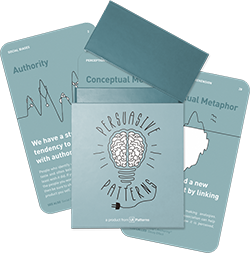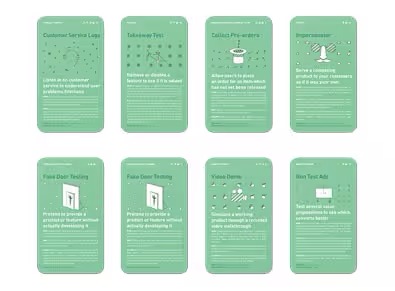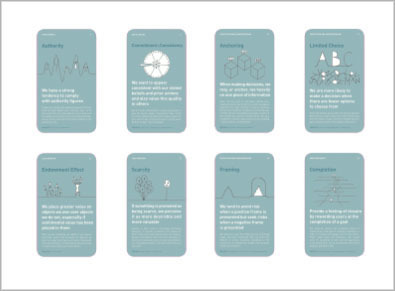Fresh Start Effect
Design Pattern
Problem summary
We are more likely to achieve goals set at the start of a new time period
Usage
- Use when users are in need of an extra boost of motivation
- Use when users have the ability, but lack the motivation
- Use to find the right time to get users to take action (Kairos)
This card is part of the Persuasive Patterns printed card deck
The Persuasive Patterns Card Deck is a collection of 60 design patterns driven by psychology, presented in a manner easily referenced and used as a brainstorming tool.
Get your deck!Solution
- Frame time markers as opportunities. Frame certain points in time as opportunities for a fresh start. Consider whether you can frame other time scales than just the new year coming. If applicable, use efforts of previous attempts as an anchor to beat.* Consider decay. Research for how long fresh-start feelings persist. The fresh start effect in relation to labor day might decay faster than for a new year.
- Consider frequency. The simpler the behavior required to take action is, the more likely it is that users will be motivated for behavior change.
Rationale
Time based landmarks such as a new week, month, year, national holiday, school semesater, or an anniversary, marks the passage of a mental accounting period assigning past imperfections to the previous period. In turn, this motivates to big-picture thinking and aspirational behaviors for the coming period of time and can hellp overcome willpower problems that keeps us from achieving our goals.
Although the research body is large in regards to understanding situational factors that motivate people to pursue their aspirations, few studies have investigated naturally arising points in time when people feel particularly motivated to tackle their goals. Besides Dai, Milkman, and Riis, who coined the Fresh Start Effect, BJ Fogg addresses the concept of motivational waves.
1 Dai, Milkman & Riis (2013). The Fresh Start Effect: Temporal Landmarks That Motivate Aspirational Behaviour. The Wharton School Research Paper No.51
2 Norcross JC, et. al. (2002). Auld lang syne: Success predictors, change processes, and self-reported outcomes of New Year’s resolvers and nonresolvers. J. Clin. Psych. 58(4):397–405.
3 Use the fresh start effect to boost your motivation at memory.ai
4 Reaching goals with the science of the “fresh start effect”
at Psychology Compass
5 Fresh Start Effect at Coglode.com
6 The Fresh Start Effect at Learning Loop
User Interface Design Patterns
- Forms
- Explaining the process
- Community driven
- Tabs
- Jumping in hierarchy
- Menus
- Content
- Gestures
- Tables
- Formatting data
- Images
- Search
- Reputation
- Social interactions
- Shopping
- Increasing frequency
- Guidance
- Registration
Persuasive Design Patterns
- Loss Aversion
- Other cognitive biases
- Scarcity
- Gameplay design
- Fundamentals of rewards
- Gameplay rewards


